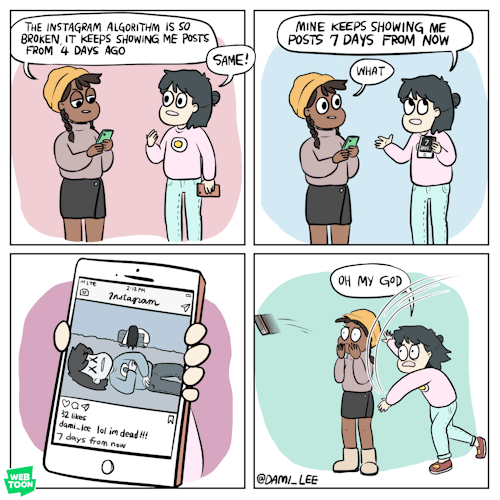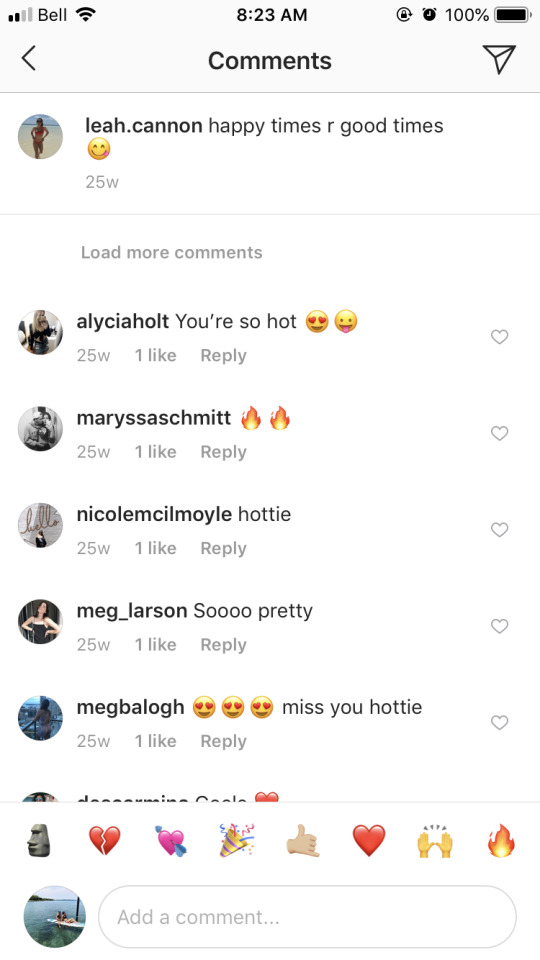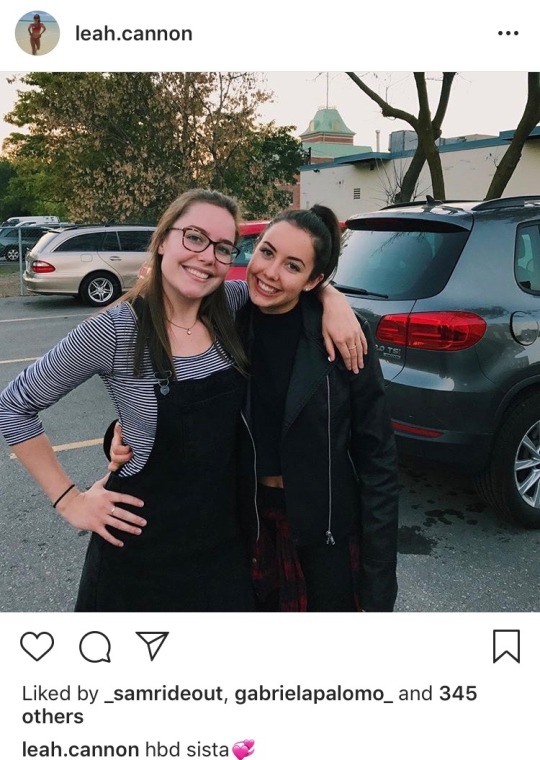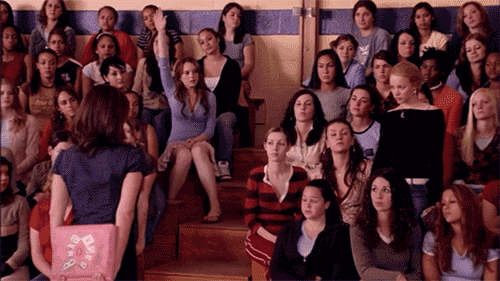Text
Audience Studie (3P18) Blog Post #1
Which picture should I post on Instagram, the one where I’m looking at the camera or off into the distance? I wonder which one will get me more likes? Good morning readers, I hope everyone is looking forward to having a great day as it is a beautiful day to be alive! First and foremost, I want to welcome everyone to my first ever blog post. As you you may have gathered, I'm in a big dilemma of which picture I should post on Instagram. I mean, I have to post the one that will get me the most likes, right? Well at least that’s what I feel is the expected thought process with this platform. Today I’m going to be discussing audiences, but on a deeper level. What is an audience? What is an audience experience? Am I part of an audience? Am I a content producer for a specific audience? I will be discussing all of these questions and more as I explain to you my experience with Instagram and how I am a content producer for my followers, or better yet, my audience.

To begin, let me answer your question of what exactly an audience is. According to the Cambridge Dictionary, an audience is “the group of people together in one place to watch or listen to a play, film, someone speaking, etc.:” (Cambridge Dictionary). With that being said, viewers of a movie are an audience, students in a classroom are an audience, an audience member can even go as far as being one of your Instagram followers who sees each and every one of your pictures. Crazy, right? This got me thinking, where I realized that everyday I have a real life audience experience, although I am the producer rather than the viewer. This is a difficult concept to grasp, because how can I have an audience when I do not physically see them? History explains that in the past, audience members had to be temporal, meaning that they had to be in the same time. For this to be the case, they had to be physically present and interaction with the audience had to occur. With the rise of social media, it has eliminated the idea of audience being temporal. Think about it this way, my most recent post on Instagram will not only be posted for an hour for my followers to see, it will be there until I decided to delete it, which may be weeks, months, or even years from now. Due to the fact that the content is semi-permanent, my audience does not have to be in the same time as when my post was made, as they have the ability to go on to my Instagram page and look at the picture at a later date. Also, unlike Greek theatre that was 4th-5th BCE and Roman theatre which occurred 1st-3rd BCE, my audience is not physical. I have no arena where I stand to present my pictures, or share my captions out loud. My audience does not physically applaud to my photos or show rowdiness depending on how much they like my picture. I suppose a modern-day form of rowdiness online would be leaving comments on pictures such as “GIRL! You look so good!!!!”.

I suppose the way that the media allows users to present their content online leaves more room for my audience to be fake towards me. I can’t see their facial expression when they first see my picture, nor can I hear what they say to their best friend about me as they both tear apart my every flaw, all while they like and comment on my photo. But do I really care what they say about me behind my back? Because at the end of the day those two best friends still both physically double tapped my picture, which means more likes for me. Thats the goal, right? With social media platforms such as Instagram, the size of the audience matters. The more followers that you have, the more popular you are and the more likes on a picture you're likely to receive. Therefore, the goal is to have a mediated audience, meaning that it is large. On a platform of the sort, you do not want an unmediated audience, because that means your follower count will be smaller, and who wants to be a loser and only have 200 followers? Well according to what the social norm is these days, no one.
This is where self-perception is skewed. As much as I hate to admit it, I do care about the way my Instagram looks. The fact that myself, and many others care so much about our online presence is definitely hindering negativity over our offline presence. Let me explain. Essentially, your online presence is the image that you portray of yourself through social media platforms, such as Twitter, Instagram, Facebook, etc. Our offline presence is who we are face-to-face, when we no longer have a screen to hind behind. We have audiences for both presences, although we have the ability to be perceived differently by both sets of audiences in both circumstances. But what do we base these perceptions off of? How do I make sure that I post the “right” Instagram photo, or that I say the “right” thing in seminar? These decisions are primarily based on what we think that society wants to see or hear, otherwise considered social norms. An article written by German Neubaum and Nicole C. Krämer, discussed the theory of Spiral of Silence, which describes the idea that as social creatures all we want is to fit in, therefore we conform to what we believe is the majority opinion, despite what we actually believe ourselves. (Neubaum., Krämer. 2016). As ridiculous as this sounds, it is true. I can assure that the majority of people would not post a picture online, or make a statement in class if they knew they were supporting the minority opinion. Why? Because this could lead to rejection from society, putting yourself in a position consumed by the feeling of isolation. I mean come on, there is no way I would share my opinion if I knew that everyone else disagreed with it, I’d rather swallow my pride and know that I’m still being seen in a positive way in society. Just in the same way that I wouldn't post an un-flattering photo of myself on Instagram, I can’t have my followers thinking I'm ugly, or fat, or even a catfish. This is all because, just like many others, I fear the rejection of my audience. I fear the idea that I’ll lose followers, or get less likes, or have less people commenting on my pictures. We all allow these online and offline audiences to depict the aspects of ourselves that we show because we are too afraid to risk rejection. As I think about these ideas, I’m wondering where it will go from here. As a society, will our online presence become more valuable than our offline presence? Will I start caring more about what my online audience thinks about me, than the people who see me in every-day life? As you continue to read, think about these questions and what you personally think your perspective on the subject will be five, even ten years from now.
The idea of having an audience goes beyond the idea that people are looking at you, listening to you, and analyzing you, but more so who is looking at you, who is listening to you, and who is analyzing you. Relevance my friends. Relevance of your audience members greatly impacts your behaviour, because depending on the audience who you are presented before will change the way that you behave. Again, I’m referring to my online presence and who in particular is seeing my content. I’m torn, because I want to post a picture of myself wearing a bikini so that my crush thinks I’m hot, but my aunt follows my Instagram as well and I don't want her seeing that sort of picture. Whatever, I’m just going to post the picture, because my aunt is only one of a few of my followers who might not like this picture. But I’m sure the majority of people will like it, including my crush. *Picture posted*. And voila, a prime example of conforming to what I believe is the majority opinion and social norm. But come on, wouldn't you have done the same thing? The answer to the question for most people is probably yes. Instagram is full of girls wearing skimpy clothing and bikinis, because that is what society has developed into, making your online appearance as attractive as can be. I am not saying that posting pictures of the sort is right or wrong, because I can say that I’ve done it myself. My point here is that a lot of girls do post pictures of the sort in order to get approval from their audience, for their followers to think “she’s hot”, and then go on to like the picture. But isn't that a good thing? Because now that girl will get a huge amount of likes which means more people like her, right?
Don’t get me wrong, Instagram can be used in a way that is positive when put into relation with offline situations. For example, if I’m starting a charity and want to raise awareness of breast cancer. I can use social media platforms to my advantage by posting pictures on Instagram and messages on Facebook in order to gain an audience who is interested in the topic and willing to contribute to the campaign. I can ask my friends to also post about it so that her audience sees the campaign as well. Once again, it comes down to who your audience is what they want to see. In a situation like this, although this campaign is for a great cause, I’m sure that there are many people who will scroll right past the post, because it is not in the majority category of what is being posted, therefore people have no interest. This idea brings about the concept of establishing how public opinions are formed. Public opinions are not always established through discussion, but rather generated through the machinery of polling. Let me break it down. My bother and I have roughly the same amount of followers on Instagram, although I post a picture of myself on vacation, and get 467 likes. My brother posts a picture of the scenery at the beach and gets 241 likes. This is public polling. Essentially, without discussion, the “public” has decided that my picture is more worthy of likes than my brothers. No discussion was had, it was all simply based on what the public, or better yet online audiences, wanted to see. This form of analysis can also be done between two pictures that I’ve posted. For example, if I post a picture of just myself I’m more likely to get a better reaction (more likes) from my audience than if I were to post a picture with my sister in it. I’m no sociologist, but I can tell you that this is once again because of social norms.


Now for the part that you've been waiting for. Why am I talking about my Instagram? Who really cares?

Well how much you care really depends on your relation to the topic. If you are Instagram obsessed like myself, you may care about my two cents more than the next guy. I personally believe that it is important to be aware of your surroundings, online and offline. As society changes and technology develops, we are all lead to believe that we must adapt to the newest and coolest trends. By this I mean that we all feel as though we must put our best front forward at all times when it comes to our online identity, for woman especially. There is so much pressure to have the perfect colour hair, or just the right amount of makeup on, or even to have the perfect size butt, because those things matter, right? Not necessarily. It’s all an ideology created by society which leads to nothing more than low esteem and women feeling like they aren’t, and never will be good enough.
https://www.cosmopolitan.com/health-fitness/a8601466/why-dont-i-look-like-her-how-instagram-is-ruining-our-self-esteem/
We are so caught up in the idea of acceptance, that our fear of rejection has driven many of us away from stating our own thoughts. It’s almost as if we fear our audiences. People are so worried about what their viewers will think about them. People are so scared to be themselves that they allow media to control them and tell them what other people think. It really is interesting when you approach the topic through the perspective of an audience. Because even for myself, someone who is into Instagram, at the end of the day whatever I post is for my followers to see, so why wouldn't I look the best that I can? If I have the ability to control my content and manipulate the pictures and and words I post, I’m going to take full advantage, most people will.
I suppose what I’m trying to say is that I care. Most people care. No one wants to admit it. No one wants to say “I care about what other people think of me”. Of course, there are the select few people who don’t care, but most do. So next time you post a picture, think about why you’re posting that specific one. Think about who you’re posting it for. Who are your followers? Who is your audience?
Bibliography
Audience Meaning in the Cambridge English Dictionary. (n.d.). Retrieved October 1, 2018, from https://dictionary.cambridge.org/dictionary/english/audience
Neubaum, G., & Krämer, N. (2018). What Do We Fear? Expected Sanctions for Expressing Minority Opinions in Offline and Online Communication. 140-164. Retrieved October 1, 2018, from https://lms.brocku.ca/access/content/group/9df5b556-67d7-4f42-9077-6c5eac70d16c/3P18 Readings/Neubaum What Do We Fear Expected Sanctions.pdf.
0 notes